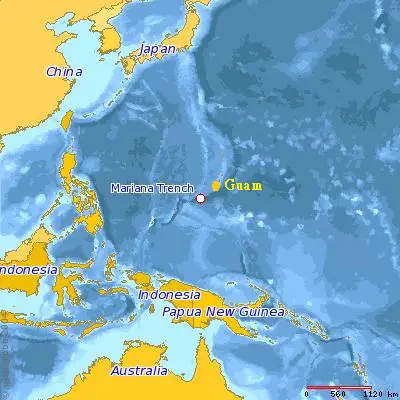Air pollution levels put the health of passengers, staff, port communities at risk, according to a report by Johns Hopkins University researcher.
A new investigative report released details the shocking findings of a two-year study exposing extremely poor air quality on four Carnival Corporation ships that can be worse than some of the world’s most polluted cities including Beijing, China and Santiago, Chile.
The report, titled “An investigation of air pollution on the decks of 4 cruise ships” was authored by Dr. Ryan Kennedy, an assistant professor at the Johns Hopkins University Bloomberg School of Public Health. The study was commissioned by international environmental organization Stand.earth.
“More than 30 million people worldwide are expected to go on a cruise in 2019, and these cruise passengers and staff may be exposed to concerning levels of air pollution that could impact their health. Despite being on the open sea, they can be breathing dirty air worse than some of the world’s most polluted cities,” said Dr. Ryan Kennedy, a researcher at the Johns Hopkins University Bloomberg School of Public Health.
ULTRAFINE PARTICULATE POLLUTION
The study measured ultrafine particulate pollution from multiple locations on four cruise ships, both in port and at sea over multi-day cruises. The ships — operating under the Carnival, Holland America, and Princess lines — left from Port Canaveral, Florida to the Bahamas; from Galveston, Texas to the Western Caribbean and Mexico; from Vancouver, British Columbia to Los Angeles, California; and from Los Angeles, California, to Mexico.
While less studied than fine particulate pollution, ultrafine particulate pollution can be detrimental to human health because of the increased toxicity. Ultrafine particles can have thousands of times more surface area than fine particles and are small enough to be inhaled into a person’s lungs and move into the bloodstream, where they can cause higher rates of cardiovascular disease and asthma. Recent studies have suggested that ultrafine particles may be the most dangerous to human health and that particulate matter from ship exhaust may be to blame for tens of thousands of annual deaths.
“Extremely high levels of air pollution measured on these Carnival Corporation ships suggest this pollution could pose serious health risks to passengers, staff, and people living in port and coastal communities. The most shocking finding from this study is that pollution was often highest near the stern of the ships, where passengers are encouraged to exercise. This study should be a warning sign for anyone considering booking a cruise, but especially for vulnerable groups such as the elderly and young children or anyone with cardiovascular problems,” said Kendra Ulrich, Senior Shipping Campaigner at Stand.earth.
HEAVY FUEL OIL
One of Stand.earth’s core programs works to reduce the climate and human health impacts of the shipping industry. Stand.earth is urging Carnival Corporation to transition away from using heavy fuel oil (HFO) to power its ships and immediately switch to a cleaner-burning fuel while installing filters to help reduce ultrafine particulate pollution. Ultimately, Stand.earth wants Carnival Corporation, the world’s largest cruise operator, to transition away from fossil-fuel powered ships completely.
“Carnival Corporation claims sustainability and human rights are core company values, but its policies continue to threaten its clients and the environment. Most of Carnival’s global fleet burns heavy fuel oil — the dirtiest fossil fuel available for marine transportation. This study exposes the health consequences of using this bottom-of-the-barrel oil coupled with inadequate pollution filters, simply because it’s dirt cheap. Carnival’s own customers could be subsidizing the company’s profits with their health,” said Ulrich.
STUDY CONCLUSIONS
Some of the findings from the study include:
- While all four ships were traveling at sea, average particle counts were significantly higher in the areas behind the smokestacks (stern).
- Particle counts on the Holland America MS Amsterdam were approximately eight times higher on the stern areas than on the bow.
- Particle counts on the Carnival Freedom measured as high as 73,621 particles per cubic centimeter (pt/cc) near the running track while at sea.
- Particle counts on the Princess Cruises Emerald Princess measured as high as 157,716 pt/cc on the lower stern while at sea.
- In comparison, pollution measurements were taken with the same equipment in Beijing, China in 2009 was 30,000 pt/cc on a busy street, and in Santiago, Chile in 2011-2012 was in the ranges of 8,000-30,100 pt/cc.
In addition to the report’s documented air pollution impacts on cruise passengers and staff, studies have shown approximately 70% of ship emissions occur within 250 miles of land, potentially exposing millions of unsuspecting people to dangerous air pollution levels and raising serious health concerns for coastal cities and port communities.
CRUISE SHIP SCRUBBERS
All four ships in this study have scrubbers installed, an exhaust-cleaning technology designed to reduce sulfur air emissions. This allows the ships to burn heavy fuel oil inside most of the North American and Caribbean Emissions Control Areas, where there are strict limits on emissions. In California, where scrubbers are banned within 24 miles from shore, ships are required to switch to a cleaner-burning fuel.
“Carnival claims its scrubbers significantly reduce air emissions. This report’s continuous elevated readings indicate that even in California, where Carnival Corporation is required to switch to a cleaner-burning fuel, air pollution on board remains a serious concern. That’s why Carnival must not only switch to a cleaner-burning fuel but also install adequate pollution filters to help prevent this dangerous ultrafine particulate pollution from impacting the health of its passengers and staff,” said Ulrich.
As air pollution becomes an increasing concern for global health officials — including the head of the World Health Organization who recently called air pollution “the new tobacco” — Carnival’s use of heavy fuel oil is putting human health at serious risk.
Press Releases: stand.earth
Photo Courtesy: stand.earth
The post Investigation: Air Quality On Carnival Cruise Ships Can Be Worse Than Some Of World’s Most Polluted Cities appeared first on Maritime Manual.
from WordPress http://bit.ly/2Bc3QiS

No comments:
Post a Comment